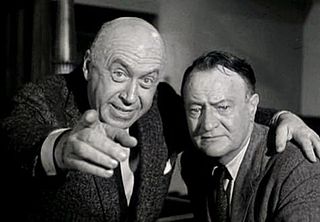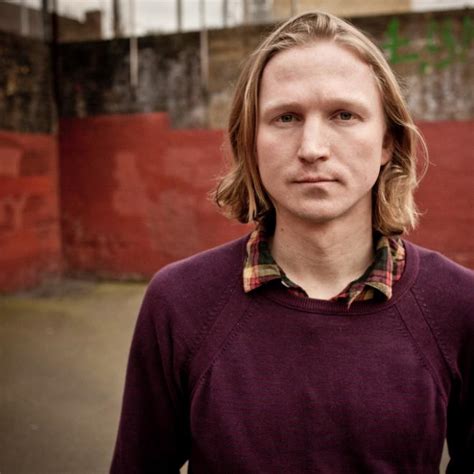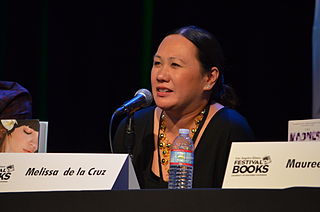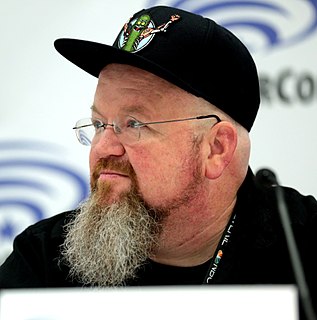A Quote by Alice Munro
I saw how the forms of love might be maintained with a condemned person but with the love in fact measured and disciplined, because you have to survive. It could be done so discreetly that the object of such care would not suspect, any more than she would suspect the sentence of death itself.
Related Quotes
You do understand," she continued, "that unless I had an object to love -- or, more accurately, a someone to love -- if I did not have such a relationship within myself, then I would not be capable of love at all? You would have a god who could not love. Or maybe worse, you would have a god who, when he chose, could love only as a limitation of his nature.
I fish because I love to . . . because I love the environs where trout are found . . . because I suspect that men are going along this way for the last time, and I for one don’t want to waste the trip . . . and, finally, not because I regard fishing as being so terribly important but because I suspect that so many of the other concerns of men are equally unimportant––and not nearly so much fun.
If he looked into her face, he would see those haunted, loving eyes. The hauntedness would irritate him - the love would move him to fury. How dare she love him? Hadn't she any sense at all? What was he supposed to do about that? Return it? How? What could his calloused hands produce to make her smile? What of his knowledge of the world and of life could be useful to her? What could his heavy arms and befuddled brain accomplish that would earn him his own respect, that would in turn allow him to accept her love?
Oh diary, I love her, I love her, I love her so much. Jordana is the most amazing person I have ever met. I could eat her. I could drink her blood. She's the only person I would allow to be shrunk to microscopic size and explore me in a tiny submersible machine. She is wonderful and beautiful and sensitive and funny and sexy. She's too good for me, she's too good for anyone! All I could do was let her know. I said: "I love you more than words. And I am a big fan of words.
The pleasures of love are for those who are hopelessly addicted to another living creature. The reasons for such addiction are so many that I suspect they are never the same in any two cases. It includes passion but does not survive by passion; it has its whiffs of the agreeable vertigo of young love, but it is stable more often than dizzy; it is a growing, changing thing, and it is tactful enough to give the addicted parties occasional rests from strong and exhausting feeling of any kind.
The tragedy of love is not death or separation. How long do you think it would have been before one or other of them ceased to care? Oh, it is dreadfully bitter to look at a woman whom you have loved with all your heart and soul, so that you felt you could not bear to let her out of your sight, and realize that you would not mind if you never saw her again. The tragedy of love is indifference.
The Code of the Vampires decreed that anyone who violated the Sacred Law was condemned to death, the blood burning. Charles had refused to subject Allegra to the sentence. But Mimi was a different matter. Mimi walked out of the church, knowing that if she ever saw Jack again, she would have to kill him.
So she had to satisfy herself with the idea of love - loving the loving of things whose existence she didn't care at all about. Love itself became the object of her love. She loved herself in love, she loved loving love, as love loves loving, and was able, in that way, to reconcile herself with a world that fell so short of what she would have hoped for. It was not the world that was the great and saving lie, but her willingness to make it beautiful and fair, to live a once-removed life, in a world once-removed from the one in which everyone else seemed to exist.
I could see how you could do extreme things for the person you loved. Adam One said that when you loved a person, that love might not always get returned the way you wanted, but it was a good thing anyway because love went out all around you like an energy wave, and a creature you didn't know would be helped by it.
I suspect that many of us, if given the chance to make one person in our lives love us more, would have no trouble in choosing where to point a finger. We are all needy, all vulnerable, all terrified that perhaps that person has an excellent reason to withhold affection. We shape our purposes to make ourselves worthy and often do not see until much later how it was love-or perhaps the lack of it-that both picked us up and dropped us off at crossroads.
As a child, Kate hat once asked her mother how she would know she was in love. Her mother had said she would know she was in love when she would be willing to give up chocolate forever to be with that person for even an hour. Kate, a dedicated and hopeless chocoholic, had decided right then that she would never fall in love. She had been sure that no male was worth such privation.





































